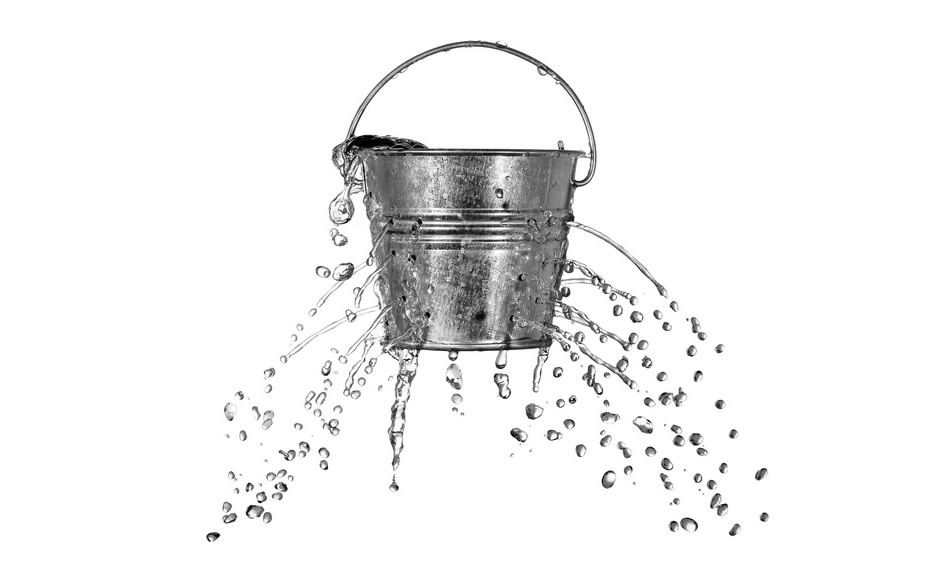
For Trump, the week the bottom fell out
Every week I swear I am not going to write about Trump and his sorry administration. Then Trump and his fearsome band commit a fresh outrage—or they are exposed by the media as having secretly committed such—and my plan goes out the window.
Not that I lack the will to fulfill a resolution. It’s just that the antics of Trump and company week in and week out are so grave that to ignore them would be like being locked in a room and trying to ignore the bomb ticking down to boom.
This week the bombshell was the revelation that during the fall campaign Donald Trump Jr., Jared Kushner, and Paul Manafort eagerly attended a meeting with a Russian lawyer who promised to deliver damaging information about Hillary Clinton. The lawyer reportedly has connections with the very top of the Russian government. An email was uncovered that showed that Trump Jr. knew that the meeting was part of a larger Russian effort to aid the Trump campaign.
Trump Sr. claims he knew nothing about the meeting, almost certainly a lie since Trump is a control freak and the meeting involved his son, his son-in-law, and his campaign manager. And, not long after Jr. met with the Russian attorney, the elder Trump pleaded with the Russians to release the emails their hackers had illegally obtained from Hillary Clinton’s internet server. Shortly after, they did.
The rest is history. Most of the mainstream media, always seeking to project evenhandedness rather than present truth (sort of like trying to provide balance in the argument between Galileo and the medieval church) paid more attention to Clinton’s email “scandal”—a tempest in a teapot—than to Trump’s cruel plans and his serial lying.
The good news is that six months after Trump’s inauguration and the consolidation of a seamless Republican right-wing regime in Washington, the bottom seems to be finally falling out. Republicans in Congress have produced health care bill after health care bill and have yet to come up with one that can get enough votes to be presented for debate, much less one that will pass.
No wonder. Public support for the Republican proposal is miniscule. The latest poll shows by 2-1 voters prefer Obamacare to Trumpcare. That’s because GOP proposals are all versions of the same basic savagery, draconian reductions in health care, murder by medicine or, rather, by denial of medicine.
The reaction in the country not only has been overwhelmingly negative, it has often been furious. Raucous town hall meetings have driven Republican representatives into virtual hiding in their own districts. Some protests have been so poignant they have even shaken Republicans, no mean feat. Mothers and fathers from all over the United States have been showing up on Capitol with sick children they say will die without Medicaid, a program squarely on the GOP chopping block.
After six months in power, Trump has delivered not one piece of legislation, nothing except mean-spirited executive orders and even more mean words. That sterling track record has not been overlooked by the American people. Public approval for Trump is historically low and sinking. After six months, according to a Washington Post/ABC News poll, thirty-six percent of Americans approve of the job the president is doing compared with 58 percent who disapproved. That’s the worst approval rating for any president in 70 years of polling.
And the numbers for Trump keep getting worse. Trump was unpopular from day one and has only gotten more unpopular since. Last November, Donald Trump lost the electoral vote to Hillary Clinton, receiving only 46.2 percent of the votes to 48.3 for Clinton. At the 100-day mark, the numbers were: 42 approved, 53 disapproved. With 36 percent approval today, Trump has in effect lost 10 percent of the mediocre support he had on election date.
Moreover, voters now can connect specifics to the vague misgivings they felt about Trump during the election. After witnessing his performances abroad, by 34 to 47 percent, they don’t trust him to negotiate with foreign leaders. When it comes to negotiating with Russian president Vladimir Putin specifically, only 19 percent trust him while 48 percent do not.
The deepening Russia scandal, the inability of the Republican Congress to pass anything, the identification of the GOP with a hugely unpopular health care bill, all augur badly for Trump and the Republicans.
The bad numbers are not just about Trump either. A large majority of Americans think it’s more important for the government to provide health care than to cut taxes. That strikes at the very heart of Republican ideology.
Trump and the GOP are trying to bring down what is left of this country’s miserly safety net and to cement plutocracy as the permanent form of rule in the United States. Instead, the disastrous Trump presidency might unwittingly manage to bring down the whole edifice Republicans have been building for decades by exposing the consummate cynicism, the fake patriotism, the brazen dishonesty, and the cold cruelty that defines the twenty-first century Republican party.


